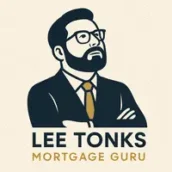
What Is a First-Time Buyer?
A first-time buyer is someone who has never owned a residential property in the UK or abroad.
You may still qualify even if you’ve owned a commercial property (without living space).
❌ You’re not classed as a first-time buyer if:
You’ve inherited a property (even if you never lived in it)
You’re buying with someone who owns or has owned property
A parent/guardian is buying the home on your behalf
How Much Deposit Do You Need?
Most lenders require at least a 5% to 10% deposit of the property’s value.
So, for a £250,000 home, you’d typically need at least £12,500–£25,000.
The bigger your deposit:
✅ The better your mortgage interest rate
✅ The lower your monthly repayments
Here’s a quick deposit guide:
P roperty Price | Deposit % | Deposit £ |
|---|---|---|
| £250,000 | 5% | £12,500 |
| £250,000 | 10% | £25,000 |
| £250,000 | 15% | £37,500 |
| £250,000 | 20% | £50,000 |
How much can you borrow as a first-time buyer?
Most lenders will offer between 4 to 4.5 times your annual income, but in some cases—especially for key workers like teachers and doctors—it could be up to 5 or 6 times.
Your borrowing power depends on:
💷 Your income (and your partner’s if joint)
💳 Credit score
📉 Existing debts
📊 Monthly outgoings
💼 Employment type and status
💰 Savings & deposit size
What Does the Mortgage Process Look Like?
Here’s a simplified breakdown of the journey:
1. Save a Deposit – Ideally 5–10% or more.
2. Check Affordability – Lenders assess what you can borrow.
3. Get an Agreement in Principle (AIP) – A soft check of your eligibility.
4. Start House Hunting – Use your AIP to make offers.
5. Offer Accepted – Time to formally apply.
6. Submit Your Application – This involves a hard credit check and detailed income checks.
7. Property Valuation – The lender checks if the property is worth what you’re paying.
8. Legal Process – A conveyancer manages contracts, searches, and legal checks.
9. Mortgage Offer & Exchange Contracts – You pay the deposit, sign contracts.
10. Completion & Move-in – Keys in hand, you’re a homeowner!
What Type of Mortgage Should I Get?
Here are the most common options:
🔒 Fixed-Rate – Rate stays the same for 2–5 years.
📈 Tracker – Follows Bank of England base rate.
⚠️ Standard Variable Rate (SVR) – Default lender rate, often higher.
🎯 Discounted Rate – Lower rate for a set time (then reverts to SVR).
🚫 Capped Rate – Your rate moves, but won’t go above a cap.
💡 Offset – Your savings reduce your mortgage interest.
What schemes are available for first-time buyers?
✅ Shared Ownership – Buy 10–75% of a property and pay rent on the rest.
✅ First Homes Scheme – Get 30–50% discount on a new-build.
✅ Mortgage Guarantee Scheme – 5% deposit deals, backed by the government (until June 2025).
✅ Help to Buy ISAs / Lifetime ISAs – Save for a deposit with a 25% top-up.
✅ Deposit Unlock – Developers offer 5% deposit schemes for new builds.
✅ Right to Buy / Right to Acquire – Council and housing association tenants can buy their home at a discount.
Speak to a First-Time Buyer Mortgage Expert
Unsure where to start? We work with trusted, qualified mortgage advisors who understand the challenges first-time buyers face.
Whether you’ve got a 5% deposit or a complex income, they can help.
